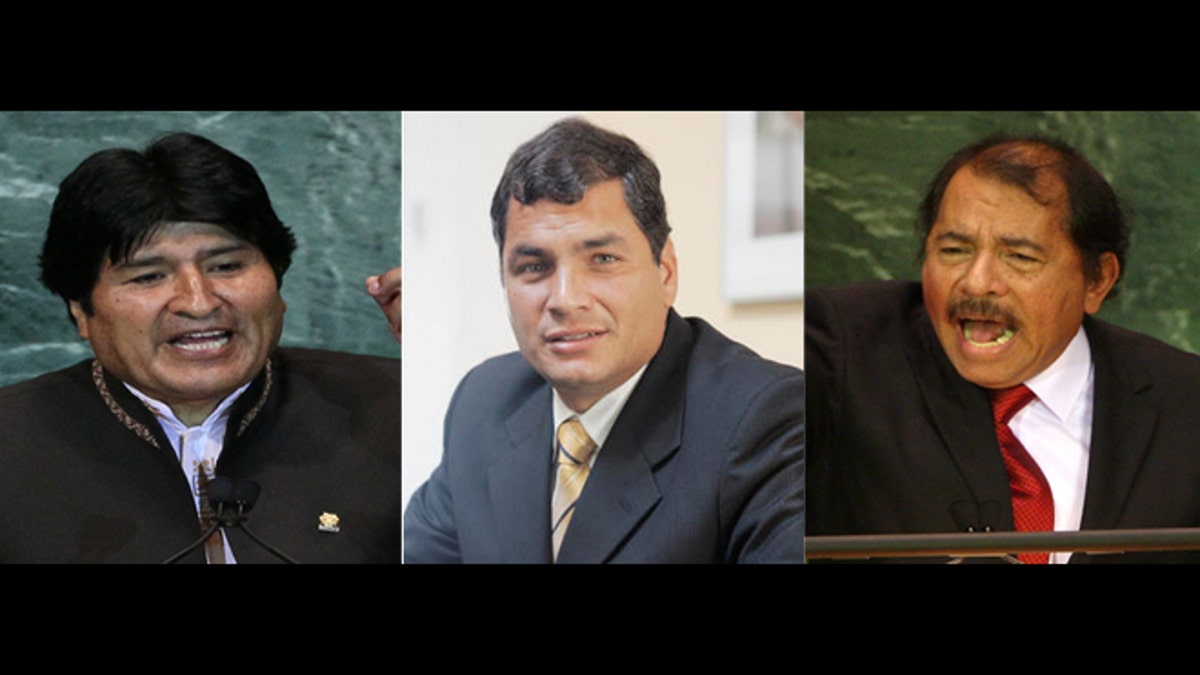
Apparently, everybody loves a bad boy…at least in Latin America.
A compilation of polls released this week appear to indicate those heads of state who take a tough guy stance toward the United States remain the most popular leaders in the region.
Ecuador’s Rafael Correa, Nicaragua’s Daniel Ortega and Evo Morales in Bolivia are all wildly popular in their home nations and wildly unpopular in the halls of Washington. In contrast, U.S.-friendly presidents like Colombia’s Juan Manuel Santos and Sebastián Piñera of Chile rank at the bottom of the list.
The results are a telling portrait of how Latin America’s constituencies favor leaders who are willing to buck up against the so-called big brother to the north and not adhere to U.S. interests in the region. The polls show that even Venezuela’s Nicolás Maduro – who is dealing with soaring crime, a struggling economy and a fading prestige on the world stage – still has the support of 48 percent of Venezuelans. That's about about four points better than U.S. President Barack Obama had back in a September poll by RealClearPolitics.
“They’ve proven to be politically very astute,” Michael Shifter, the president of the Inter-American Dialogue, a Washington research center told McClatchy newspapers. “They have a connection to their base, and they are delivering to the poor.”
The populist appeal to their countries’ working class has helped leaders like Correa and Morales win elections and stay in power despite a number of questionable moves that have garnered a slew of criticism from the U.S. and international bodies like the United Nations and the Organziation of American States.
Correa has reduced income inequality, expanded the middle class and reduced poverty from 37 to 27 percent since 2006, but he has also cracked down on free press, lobbied successfully for to allow the extraction of oil from the country’s Yasuni National Park and offered asylum to National Security Agency leaker Edward Snowden.
For his part, Morales has expanded Bolivia’s coca industry and turned the country into a “plurinational” government with a heavy focus on indigenous rights. But he has attracted heat from Washington for his opposition to U.S. anti-drug efforts in the country and the U.S.’s presence in the region.
Both Colombia’s Santos and Chile’s Piñera have approval rating well under 40 percent – 25 and 36 percent, respectively.
While both these countries have made huge steps in terms of freedom in the past few decades, the presidents’ ranking highlight the paradox these democratically-elected leaders have to deal with: that managing a vibrant economy in the give-and-take world a multi-branch government doesn'’t always make you a popular leader.
“Where there’s more openness, that fuels expectations as well,” Shifter told McClatchy.
Follow us on twitter.com/foxnewslatino
Like us at facebook.com/foxnewslatino





















